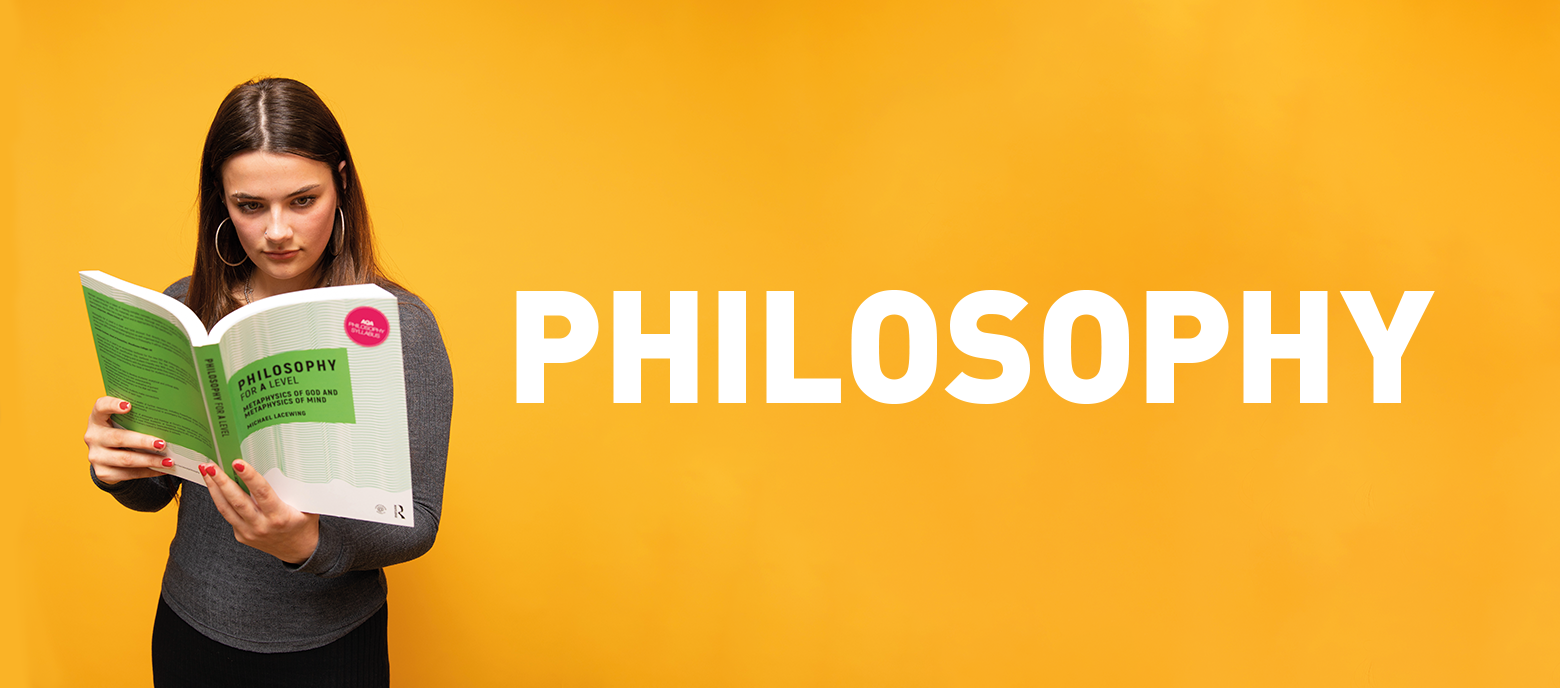Examination Board: AQA
Students are evidently drawn to the compelling and profound nature of the questions that Philosophy raises. These include how can I be sure that anything really exists? Does my mind accurately represent the world as it really is? Does God exist and, if so, why does God allow evil? Is there such a thing as right and wrong? Are mind and body separate?
Such matters have preoccupied the finest minds since the dawn of civilisation. Although few Philosophy students are rewarded for their hard work with certainty concerning them, far fewer regret having tackled them in the first place. Our students always enjoy the subject tremendously.
Philosophers take nothing on trust and are notoriously fastidious – some would say pedantic – when it comes to making their meaning clear and justifying every step in an argument. Accordingly, students will need patience and diligence as well as the capacity to think both abstractly and logically. The ability to transfer one’s thoughts onto paper in a lucid and succinct fashion is, given that assessment is entirely by timed written examination, crucial. However, despite the demands of the subject being significant, there is no one GCSE subject that is essential in preparation for studying A-level Philosophy.
Many who are unfamiliar with Philosophy wonder how such an apparently abstruse subject can be of much value beyond academia. The answer is that Philosophy practises skills of analysis, argument, evaluation and reasoning to levels arguably unsurpassed in any other subject, and that these are skills which are among those most highly prized by universities and employers alike. As an A-level, it complements all other subjects; after all, there is a Philosophy of Art as much as there is a Philosophy of Mathematics.




